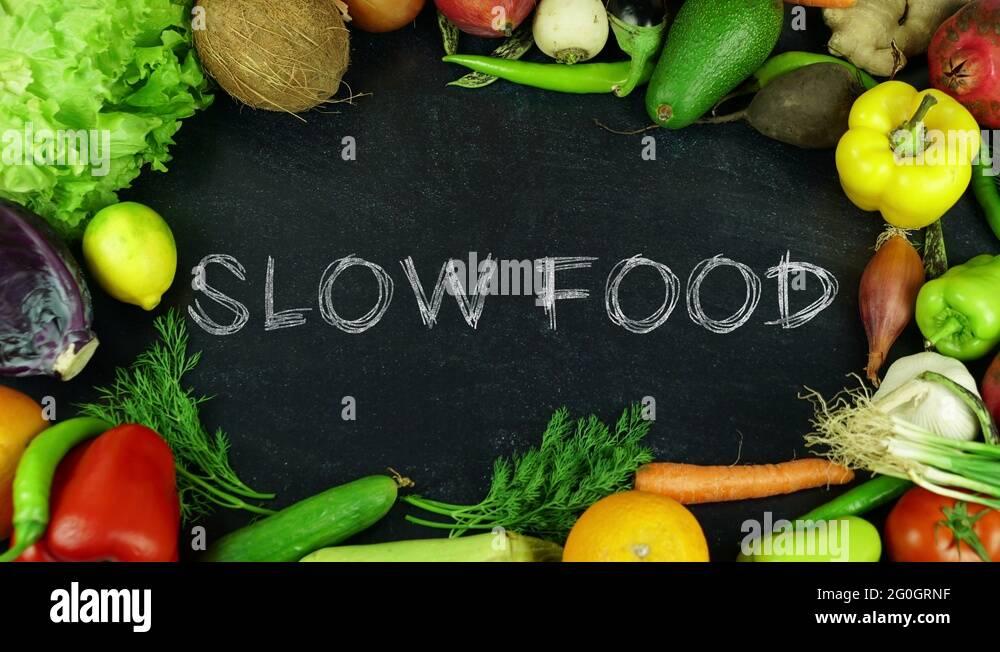The Philosophy of Slow Food: Embracing Quality, Tradition, and Sustainability
Rosalia Mamhlakoana Moliko![]() Invalid date
5 minutes, 31 seconds
Invalid date
5 minutes, 31 seconds
571 views 1 Like
Introduction
In a world driven by fast-paced living and instant gratification, the concept of "slow food" has emerged as a counterbalance, advocating for a return to quality, tradition, and sustainability in our food culture. The slow food movement, which began in the late 1980s in Italy, encourages a deeper connection with the food we consume and emphasizes a more mindful approach to food production and consumption. Let's delve into this philosophy that celebrates slowness and its profound impact on the way we perceive, produce, and savor our meals.
Slow Food: A Brief Overview
The slow food movement was born in response to the rise of fast food culture and its adverse effects on our health, environment, and local economies. Carlo Petrini, an Italian activist, founded the movement in 1986 as a reaction to the opening of a McDonald's in Rome. Petrini and fellow advocates sought to preserve local food traditions, support small-scale farmers, and promote sustainability and biodiversity.
At its core, slow food is a holistic approach to food that considers the interconnectedness of agriculture, culture, and the environment. It encourages a shift away from mass-produced, industrialized foods towards those that are local, seasonal, and sustainable.
The Pillars of Slow Food Philosophy
1. Quality over Quantity Slow food emphasizes the importance of high-quality, natural, and wholesome ingredients. It prioritizes the taste, flavor, and nutritional value of food, valuing the intricate and diverse flavors that come from traditional, artisanal methods of production.
2. Preservation of Tradition Central to the slow food philosophy is the preservation of traditional culinary practices, recipes, and regional cuisines. By celebrating these age-old techniques, slow food advocates aim to honor cultural diversity and maintain a rich tapestry of flavors and culinary heritage.
3. Sustainability and Environmental Responsibility
Slow food is deeply committed to sustainable farming and production practices. It encourages farmers to adopt environmentally-friendly methods that promote biodiversity, reduce waste, and minimize the use of chemicals and synthetic fertilizers. By supporting local farmers and producers, slow food also aims to reduce carbon footprints associated with long-distance transportation.
The Slow Food Movement in Action
The slow food movement is brought to life through a myriad of activities and initiatives, including farmers' markets, community gardens, cooking classes, and food festivals. These events encourage individuals to reconnect with the source of their food, fostering a deeper understanding and appreciation for the journey from farm to table.
One of the movement's iconic initiatives is the "Ark of Taste," a catalog of endangered traditional foods from around the world. This project strives to promote and protect unique flavors and varieties that are at risk of extinction due to industrial agriculture and changing consumer preferences.
How You Can Embrace Slow Food
Incorporating the principles of slow food into your lifestyle is both rewarding and achievable, for instance;
1-Support Local Farmers: Visit farmers' markets, join a community-supported agriculture (CSA) program, or shop at local stores to support small-scale farmers and enjoy fresh, seasonal produce.
2-Cook at Home: Experiment with traditional recipes and cooking techniques. Opt for homemade meals using locally-sourced ingredients to experience the flavors and textures unique to your region.
3-Mindful Eating: Take time to savor and appreciate each bite. Engage your senses and be present during meals, allowing yourself to truly enjoy the experience of eating.
4-Reduce Food Waste: Plan meals thoughtfully to minimize leftovers and waste. Compost food scraps and embrace creative ways to use every part of a vegetable or fruit. In
Conclusion The slow food movement stands as a beacon of hope for a more sustainable and mindful approach to our food choices. By prioritizing quality, tradition, and sustainability, we can create a food culture that nourishes our bodies, respects the environment, and celebrates the rich tapestry of culinary heritage that exists around the world. Embrace the slow food philosophy and savor the joys of mindful eating, one bite at a time.
Image source:Slow food logo Stock Videos & Footage - HD and 4K Video Clips - Alamy

